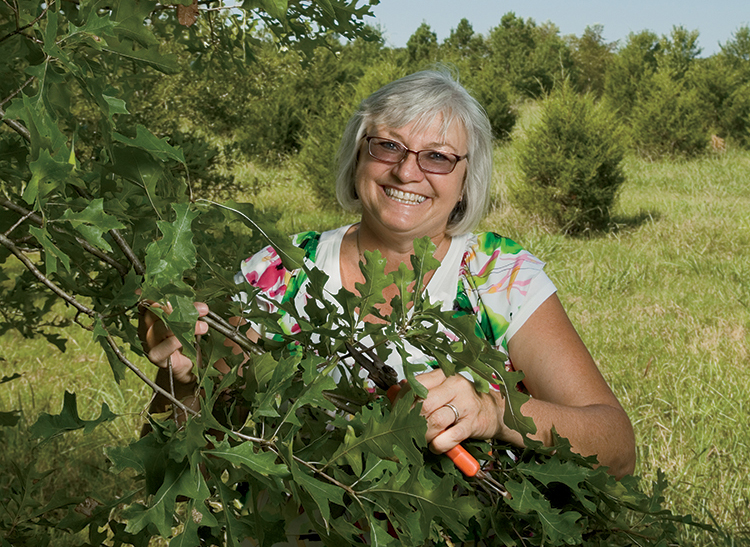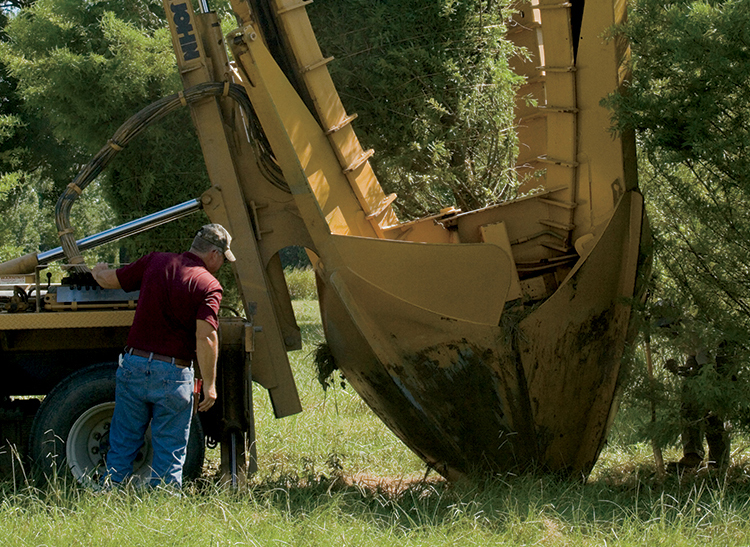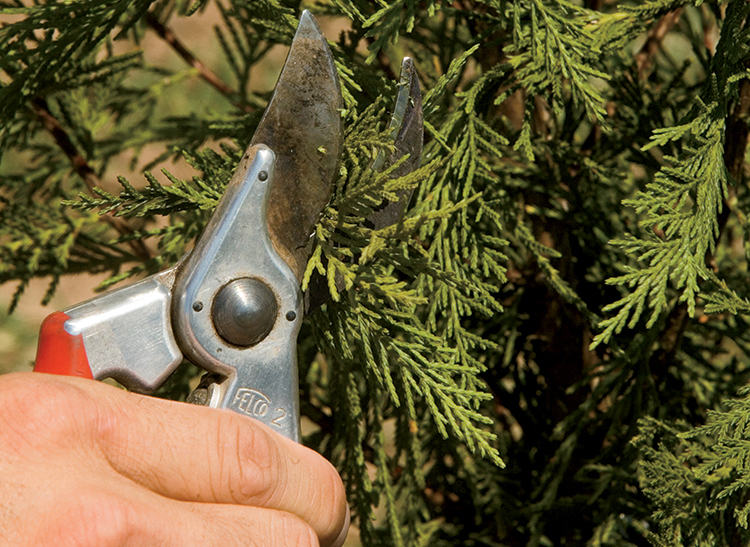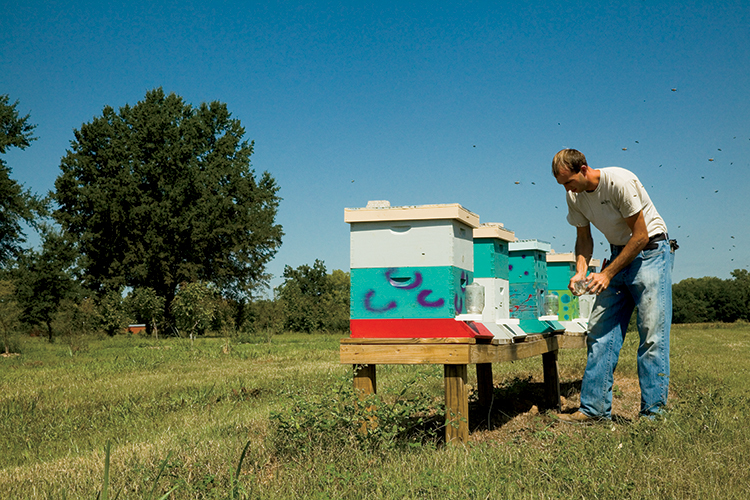Home > Arkansas > Arkansas Crops & Livestock > Bountiful Arkansas Trees
Bountiful Arkansas Trees
They say money doesn’t grow on trees. While that might be true, the Census of Agriculture reported $50 million in sales from Arkansas nurseries, greenhouses and Christmas tree farms for 2007. Sales from this industry create an additional economic impact and employment from landscape and tree care businesses.
If you’re looking for a local business to help with these needs, especially involving big trees, Bemis Tree Farm can help. “We stock 50 varieties, up to 30 feet tall, and sell all over Arkansas,” says Donna Bemis, who has operated the Little Rock business since 1992 with her husband, Tracey.
Their “spade truck” can transplant trees with trunks up to seven inches wide, allowing for preservation of fully grown trees.
Maintaining mature trees can provide a variety of benefits for urban business districts and residential areas. “Developments that leave large native trees intact and plant healthy, mature trees are just more inviting,” Bemis says. During the construction slowdown, Bemis noticed more homeowners choosing to preserve and renovate existing trees.
Renovating existing plantings could mean more than just a financial savings; consumers are more interested than ever in the growing experience, says Ron Rainey, a University of Arkansas Extension economist who studies the green industry. “The consumer’s strong desire to engage in “experiences,” as well as support their local producers, continues to drive the market for green industry sector participants,” he says.
Bemis Tree Farm recently added honeybees and beekeeping supplies for such customers. “We’ve just really enjoyed the honeybees,” says Donna, who says the farm first started keeping them to help with pumpkin pollination. Bees can help homeowners establish flowering trees that require more pollinators, such as golden rain tree, chaste tree and sourwood.
Arkansas nurseries generate income by selling trees, while other Arkansans harvest tree fruits and nuts, such as pecans, for income. “Pecans are one of the favorite nuts,” says Dan Chapman, director of the University of Arkansas Fruit Research Station in Clarksville. “Once people try pecans, they’re stuck on them.”
In 2007, more than 11,000 acres of pecan trees were counted in Arkansas. Robert Carruthers, who grows 3,108 pecan trees on 165 acres near Morrilton, says acreage is increasing due to international demand. “There was a walnut crop failure in Asia in 2007,” Carruthers explains. “So China imported U.S. pecans, and Chinese consumers loved them.” His pecan buyer ships more than half of Carruthers’ production to China.
Pecan trees demand deep, rich soils. Carruthers planted his trees on bottom ground near the Arkansas River in the 1990s, sowing wheat in between rows of maturing trees. That grain generated some income while the trees matured; raking wheat straw around the trees mulched out weeds. “I also had good access to affordable water for irrigation,” he says.
Even with ideal soils and irrigation, Arkansas tree fruit and nut producers incur multiple risks. “You have to plant good, disease-resistant rootstock, fertilize, monitor pests,” Carruthers says. “You really have to pay attention to these trees.”
He has an “Integrated Pest Management” plan, using insect traps to monitor bugs such as the pecan nut casebearer, whose worms can enter the nut and ruin its value. Insect data from his orchard is collected by University of Arkansas entomologists to help forecast when insect pests may reach other parts of the South.
Growing trees involves much science – and lots of risk. “People look at how profitable pecans can be, but you start out with many years where you don’t make anything,” Carruthers says.
Still, Arkansas tree businesses can reap sustainable incomes as the trees reach marketable or fruit- and nut-bearing ages. “Pecans have been very, very good to me,” Carruthers says.







